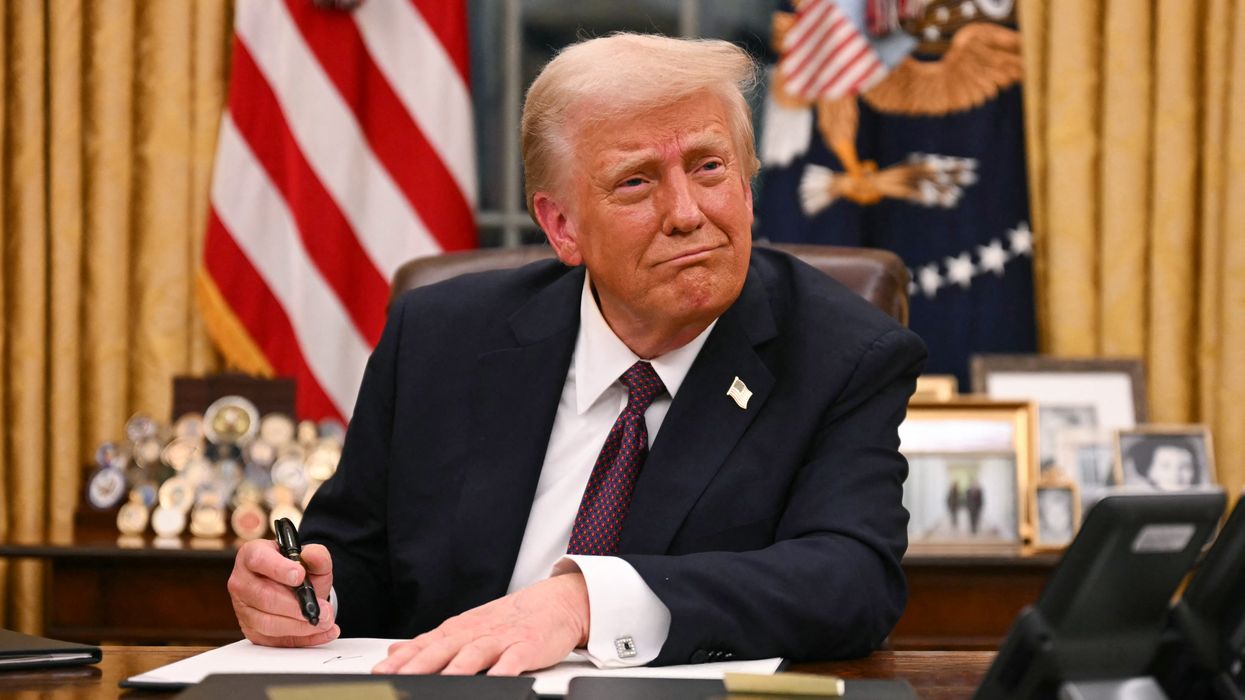US PRESIDENT Donald Trump said on Thursday he would suspend migration from what he called “third world countries”, a day after an Afghan national allegedly shot two National Guard soldiers in Washington, killing one.
Trump made the announcement in a social media post in which he also said he would reverse “millions” of admissions granted under former president Joe Biden. His comments came as his second term continues to focus on mass deportations.
Earlier, Trump said that 20-year-old Sarah Beckstrom, a West Virginia National Guard member deployed in Washington as part of his crime crackdown, had died from her wounds.
The FBI has opened an international terror investigation as new information emerged about the alleged gunman, a 29-year-old Afghan national reported by multiple US media outlets to have been part of the “Zero Units”, a CIA-backed counterterrorism force.
Officials said the shooting on Wednesday, described as an “ambush-style” attack, has brought together three issues: Trump’s use of the military on domestic deployments, immigration, and the aftermath of the US war in Afghanistan.
“I will permanently pause migration from all Third World Countries to allow the US system to fully recover,” Trump wrote in his post.
He also said he would reverse “millions” of admissions granted under Biden and would “remove anyone who is not a net asset to the United States.”
“I want to express the anguish and the horror of our entire nation at the terrorist attack yesterday in our nation's capital,” Trump said in a Thanksgiving video call with US troops.
He linked the shooting to his decision to send hundreds of National Guard troops to Washington.
“If they weren't effective, you probably wouldn't have had this done,” he said. “Maybe this man was upset because he couldn't practise crime.”
Joseph Edlow, director of US Citizenship and Immigration Services under Trump, said on Thursday he had ordered a “full scale, rigorous reexamination of every Green Card for every alien from every country of concern.”
The agency pointed to a list of 19 countries — including Afghanistan, Cuba, Haiti, Iran and Myanmar — that were facing US travel restrictions under a June order from Trump.
The administration had earlier ordered an immediate halt to processing immigration applications from Afghanistan.
‘Brazen, targeted’ attack
The second soldier wounded in Wednesday’s shooting, 24-year-old Andrew Wolfe, was “fighting for his life”, Trump said. The suspected shooter was also in serious condition.
Jeanine Pirro, the US attorney for Washington DC, said the accused, identified as Rahmanullah Lakanwal, had been living in Washington state and drove across the country to the capital.
In what she described as a “brazen and targeted” attack, Pirro said the suspect used a .357 Smith and Wesson revolver to fire at guardsmen on patrol a few blocks from the White House.
Lakanwal was charged with three counts of assault with intent to kill. Pirro said these would be upgraded to first-degree murder if either soldier died.
Officials said they have not yet determined a motive.
Afghan legacy
CIA director John Ratcliffe said the suspect had served in a CIA-backed “partner force” that fought the Taliban in Afghanistan and was brought to the United States through an evacuation programme for Afghans who had worked with the agency.
Senior Trump appointees, including the heads of the FBI, CIA and Homeland Security, said Lakanwal entered the country without proper vetting because of asylum policies after the US withdrawal from Afghanistan under former president Biden.
AfghanEvac, a group involved in resettling Afghans after the withdrawal, said arrivals went through “some of the most extensive security vetting” among migrant groups.
The organisation said Lakanwal was granted asylum in April 2025 under the Trump administration and would be eligible to apply for permanent residency after a year.
“This individual's isolated and violent act should not be used as an excuse to define or diminish an entire community,” its president, Shawn VanDiver, said.
Defence Secretary Pete Hegseth said 500 more troops would be deployed to Washington, taking the total to 2,500.
Trump has sent troops to several cities run by Democrats, including Washington, Los Angeles and Memphis, triggering lawsuits and accusations of overreach by the White House.
(With inputs from agencies)




